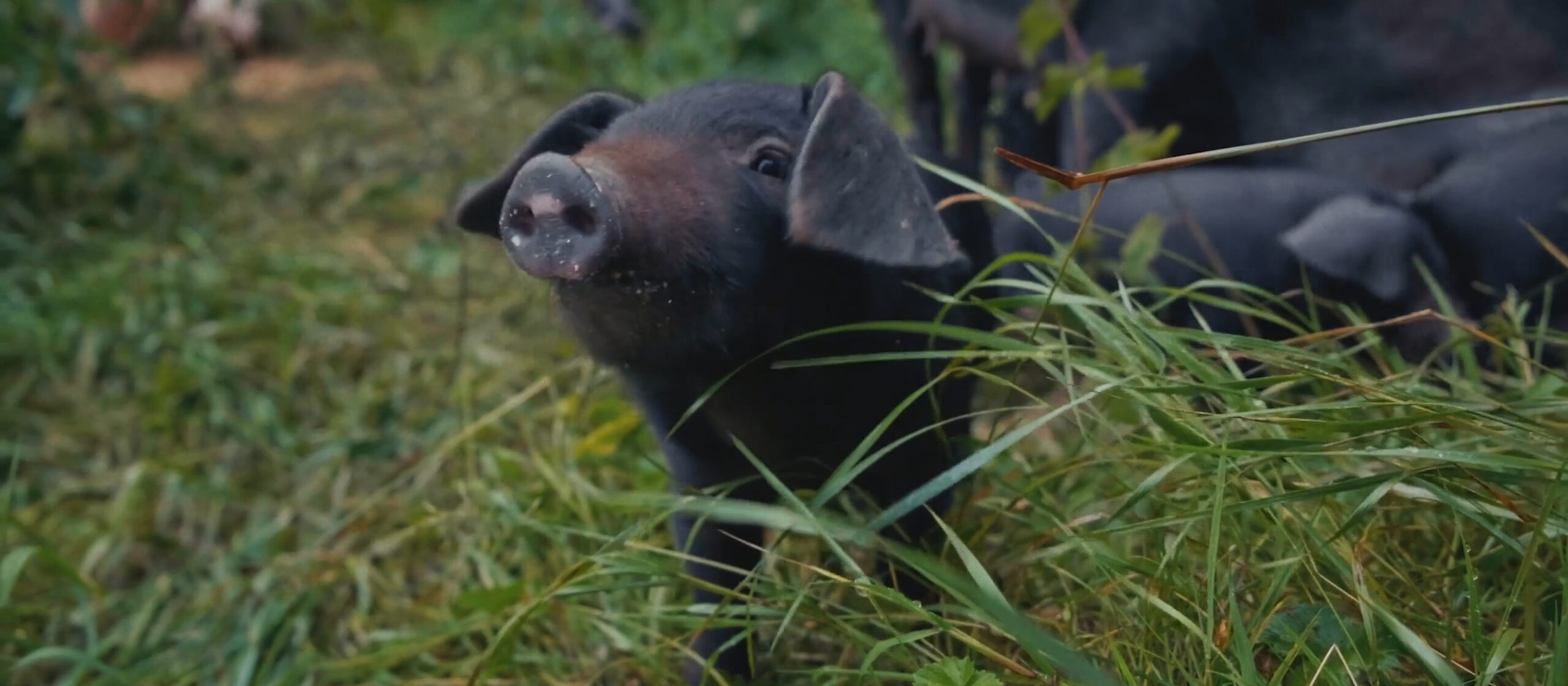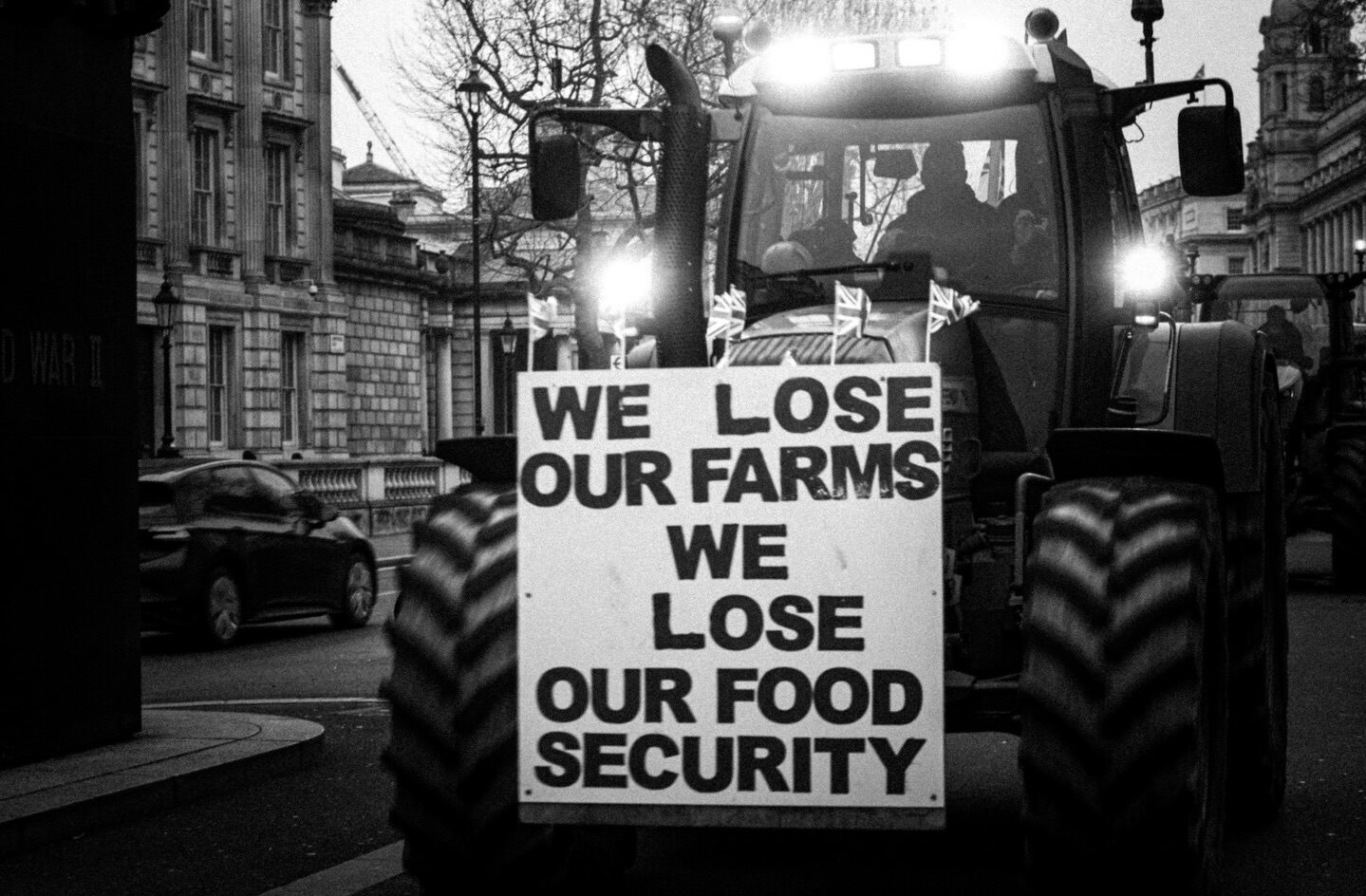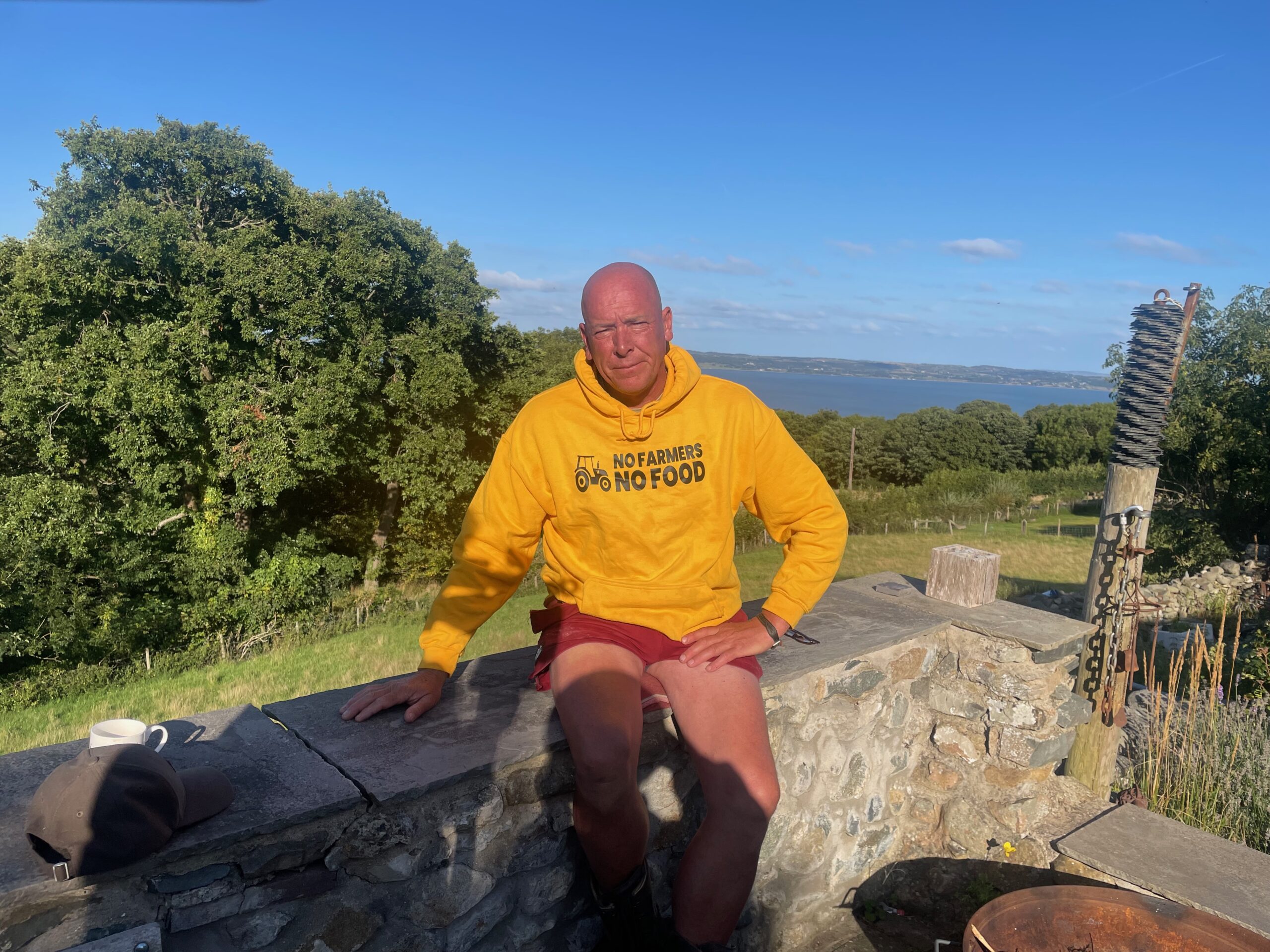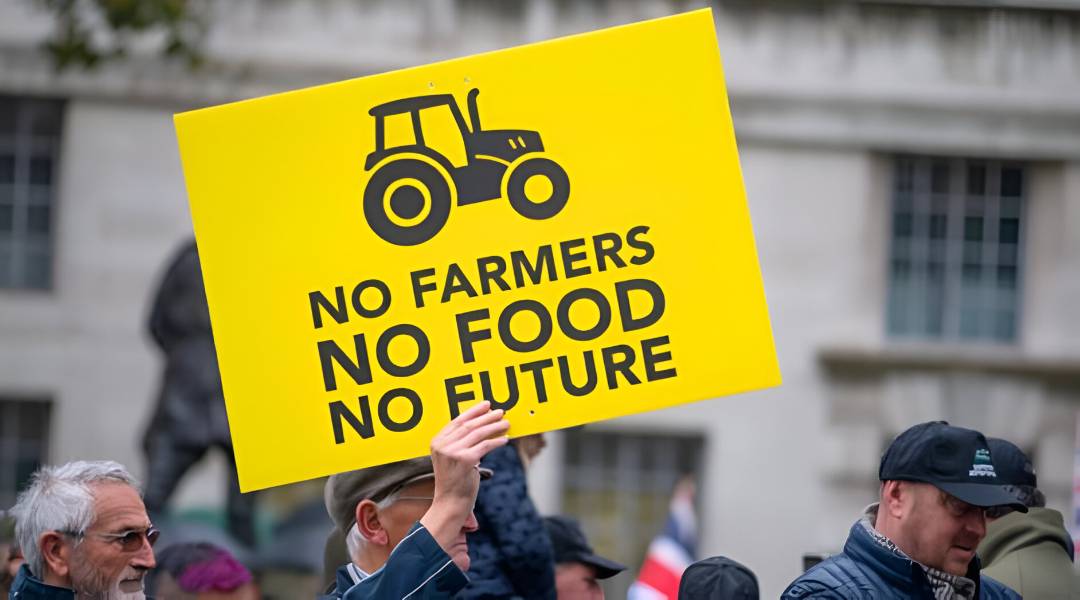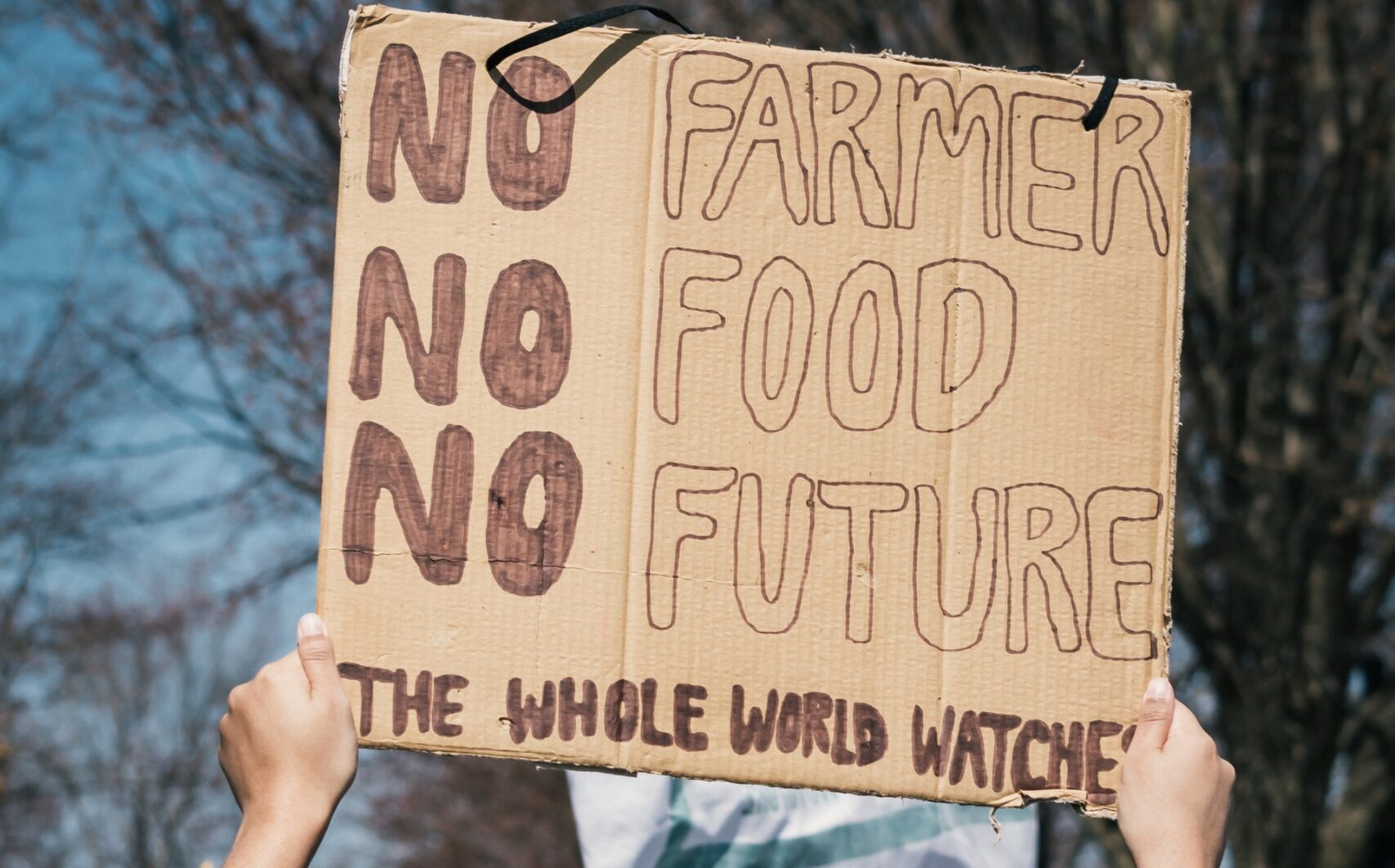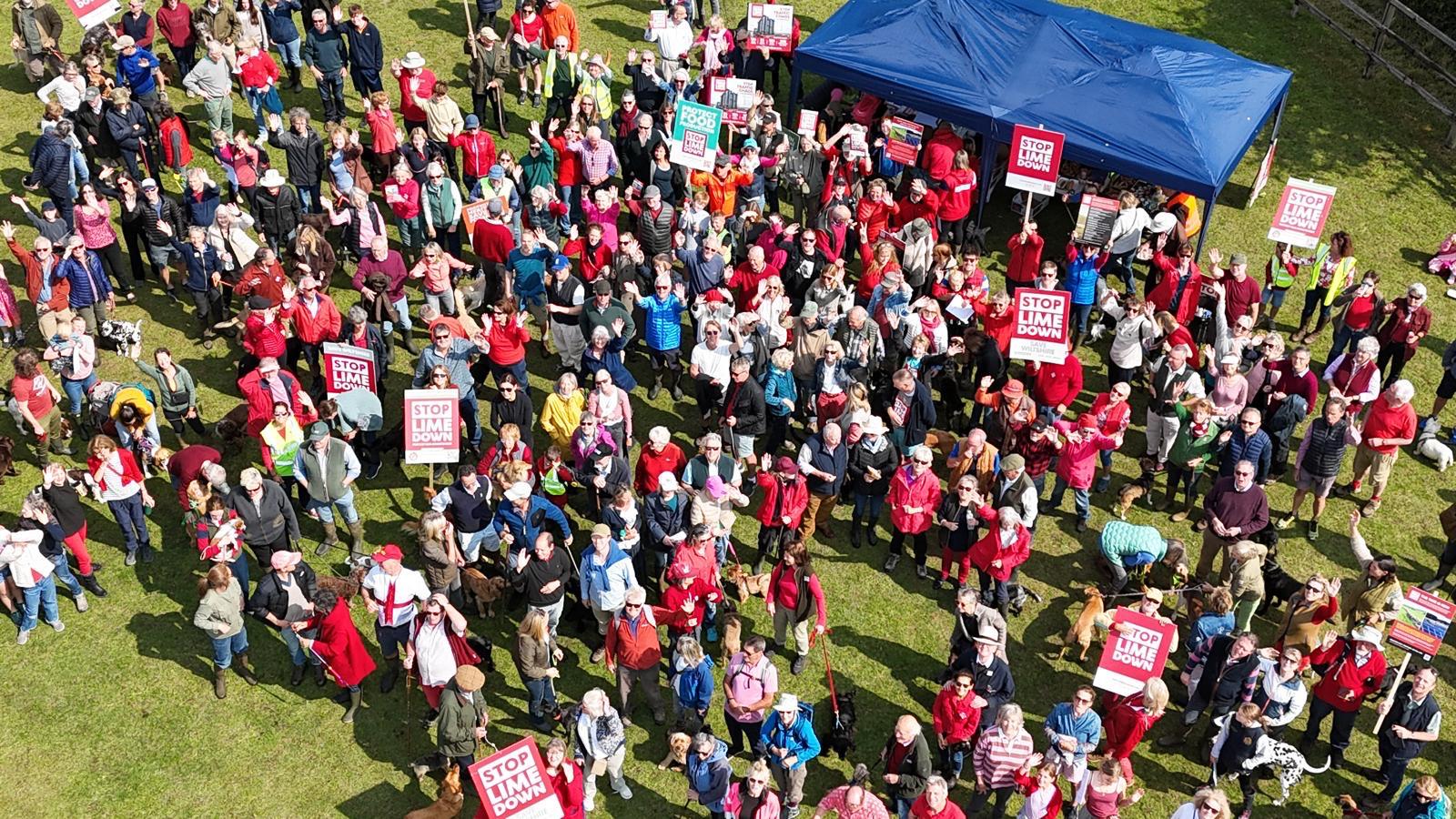The Pig Farmer
Redwoods Farm in Devon supplies The Ethical Butcher with some amazing high welfare, slow grown pork. To be regenerative, they use integrated farming where different rare breed pigs follow each other rooting the soil in rotational grazing systems and the pig feed is soya free. According to Amy Chapple, “The pigs love a lie-in!”. Video is directed and produced by Christopher Baker. Support our local, high welfare farmers and suppliers by giving this video a like and a share:
Help farmers by shunning supermarkets
As in America, UK pig farmers are faced with a mass cull of their healthy animals because there aren’t enough butchers to process them and get them off the farms. A horror scenario that we can lay the blame firmly at the feet of our centralised and consolidated food system that forces small abattoirs out of business (only 60 left in the UK) and increasingly relies on the large scale processors. Supermarkets and processors’ ultimate goal of winning markets by producing the very cheapest meat and externalising their costs onto the broader community, is the opposite to our need for real food, local meaningful jobs, money staying in the local economy, resilience, humane slaughter and reduced transport for animal welfare.
Photos in the mainstream media are of outdoor raised, or straw- bedded pigs, while in reality the slaughter of excess pigs is largely on factory farms where there are thousands of pigs in barren pens and where mother pigs are confined in narrow steel crates. However cruel, we cannot blame the factory farmers when economies of scale force them to either get big and intensive or get out of the industry. If they go under, we will simply see more factory farmed meat being imported from abroad where welfare is usually even worse. As reported in this Sky news article;
Thousands of healthy pigs are almost certainly being killed every week at the moment – possibly tens of thousands. These animals are not destined for the food chain but are killed just to make space on farms.
Some farmers are even turning to carrying out abortions on pigs; a fractionally less traumatic way to deal with the brutal and traumatic crisis of a backlog of animals.’
The bigger picture
How did we get here? When the only game in town is the competition to source the cheapest meat with the greatest gain for CEOs, investors and bankers, the inevitable result is that giant retailers buy from giant processors who undercut their local workforce by employing migrant workers. The mainstream media blame the situation on a combination of migrants losing permission to work in the UK due to Brexit and their choosing to go home during lockdowns and not returning, when in fact it is because migrants no longer want such poor pay for these mind-numbingly monotonous soulless factory jobs.
I doubt the slaughter of the 16,000 excess pigs will be humane, the farmer will yet again be the victim (as explained in this Countryfile program) and the taxpayer will foot the bill for the failures of this volatile system while the criminal giant processors and retail outlets continue to profit.
Cheap isn’t the answer
Ultimately, the true cost of the UK having the third cheapest basket of food in the developed world is too high. According to a high-level commission report.
“The true cost of that is simply passed off elsewhere in society – in a degraded environment, spiralling ill health and impoverished high streets,”
Big isn’t beautiful for the local economy
Under the guise of cheap food, big ag are promoting an economy that grows through their patenting science fiction food including GM and gene edited animals
“Genome editing could be used to perpetuate or possibly increase the dense stocking of animals in industrialised production. We would be concerned about breeding of animals that could tolerate poor conditions better without apparently having adverse health impacts.”
And highly processed pesticide drenched plant based meat and lab meat as promoted by the World Economic Forum’s 3D bio print out steak;
‘Cells are harvested from a living cow and arranged in layers by the 3D printer.’
Most consumers, however, want natural food made by real farmers with contented animals, grazing on carbon sequestrating pasture, and on real soil with vibrant biodiversity. For this, farmers need a network of small scale abattoirs and retail outlets so that they can choose the buyer who covers their costs, including fair wages, to produce healthy food. A local small scale independent food network will spend their money in the local economy creating resilience as opposed to money spent in supermarkets and corporate processor brands who invest in the volatile global economy.
On BBC Countryfile (18m47s), John Mettrick, a small abattoir owner (previously interviewed in one of our our lockdown videos), says the big processors are suffering because of labour shortages, whereas he survives with a small local workforce, and that the UK desperately needs a network of small, resilient abattoirs at a time when the centralised system is collapsing.
Farmers want to shun supermarket buyers
For farmers to be freed from the clutches of their draconian supermarket and big ag processor masters, each and every one of us need to shun supermarkets and reconnect to our precious skilled farmers via local farmers’ markets, Community Supported Agriculture, box schemes, and online markets like Big Barn.
A poll by sustainable food alliance SUSTAIN and reported in WickedLeeks, reveals that farmers want out;
‘Most farmers would prefer not to supply supermarkets, and see better opportunities for their own livelihoods, protecting nature, and connecting with their local communities elsewhere, a new survey has found.
A poll by sustainable food alliance Sustain of 500 farmers across England and Wales found 86 per cent were currently supplying a supermarket or a large food processor, but only five per cent would ‘prefer’ to continue doing so.
In a representative sample of small to medium farms, including arable, livestock, dairy, horticulture and mixed, the survey found the top three preferred places to supply food were a food hub (55 per cent), direct sales, such as through a veg box scheme (36 per cent), and the eating out sector (29 per cent).’
Local procurement initiative
To revitalise the livelihoods of our precious UK farmers, Sustain is lobbying the government to mandate for it’s £2.4 billion annual spend on public procurement – public sector schools, hospitals, the armed forces and other public institutions – to be spent on high quality, high standard British food.
‘Currently, public sector caterers are asked to follow government buying standards for food (GBSF), but are allowed to get round the rules to avoid “significant increase in costs”. They are supposed to meet higher environmental and animal welfare standards, including verifiably sustainable fish, and must promote healthier eating. Sustain estimate that only 50% of public institutions meet the current standards, and ex Government Minister Lord Vaisey has put the figure for non-compliance at 40%.
Our call to action follows recommendations from Henry Dimbleby’s National Food Strategy which found that the government buying standards don’t actually guarantee that the food bought with taxpayer money is good. It recommended that the standards be redesigned to emphasise the importance of quality over cost. With thousands of schools and hospitals already serving better standard produce within their budgets, the campaigners say the loophole can be closed without incurring additional costs.
Ministers have a chance to do this in a food strategy white paper, set to be published early next year.
Please write to your MP to call for a change in the law now.’
Online hub to the rescue!
Thankfully, from the grass roots, help is at hand to reduce the costs and improve the feasibility of relocalising UK procurement. Rich Osborn, founder of Bristol-based Equilibrium Markets (formerly the tech provider for retailer Fresh-Range), has developed an AgileChain software platform that facilitates the flow of produce into public sector catering. Rich told me about the South West Food Hub and a soon to be launched entity called, Dynamic Purchasing UK (DPUK food) that is inviting purchasing authorities like councils, schools, hospitals and prisons to set up regional food hubs and facilitate shorter, more transparent food buying chains.
Dynamic procurement of food has the potential to divert £1billion of the annual public sector spend on food – away from anonymous overseas produce – to local producers in every region of the UK. Tangible social, economic and environmental benefits can be gained as a result.
The term ‘dynamic procurement’ is a system where a buyer, chef or caterer for a public sector institution can purchase food directly from local producers, enabling more short, transparent supply chains. In this case DPUK Food is advocating for the implementation of proven cloud-based technology that connects the buyer and supplier in a regional marketplace, simplifying the logistics and invoicing for all parties in the chain.
Want to find out more? Please attend their event and extend the invite; ‘Building Nationwide Support for Dynamic Food Procurement’ online event. 10am-12pm on 8th December to those that you think can help to make this happen in your region – those involved in food procurement in anchor institutions (universities, hospitals, local authorities) and those involved in food and drink production.
Reconnecting the producer with the consumer
Councils will only change if individuals in all walks of life stop opting for convenience, (sold to us by a sophisticated corporate PR machine), and pro actively use the power of their purse to buy from a food system that we all want to see thrive. This article, The Proximity Principle by Sir Julian Rose, organic farming pioneer, author, political activist, broadcaster, social entrepreneur, holistic educator and international campaigner, is a passionate appeal to take back control of our food economy;
“Independent small and medium sized farms have been handed a death sentence by Klaus Schwab, head of The World Economic Forum. Schwab, and fellow architects of top-down control, have officially let it be known that under the policy known as ‘Green Deal’ traditional family farms are no longer wanted and the foods they produce are to be replaced by laboratory and genetically engineered synthetic lookalikes. This policy is spelled-out in the pages of Klaus Schwab’s book ‘The Great Reset’ which is part of the envisaged ‘Fourth Industrial Revolution’.
The British government and the European Commission are committed to adopting this insane agenda in which working farmers are to be replaced by digitalised precision robots, as part of a so called Global Warming mitigation crusade. When properly analysed, this is revealed as a totalitarian programme for complete corporate and banking control of the food chain. A programme that is designed to eliminate the independent farmer.
What Are We Going to Do About It?
There is a very straight forward answer to this question. We are going to come together at the local level and launch a mutually supportive initiative which will guarantee both the farmer and the purchaser of the farmer’s food a fair and mutually beneficial exchange.”
More on the above campaign anon.
News Round-up
?️ Buying direct from trusted farmers is vital not least due to supermarkets and big brand names misleading animal welfare labels. As Compassion in World Farming describes;
‘Although around 70% of UK farm animals are reared in intensive systems, there’s no law requiring food labels to say how an animal has been raised – except for whole hens’ eggs. That means meat and dairy packaging can display green meadows… but come from low welfare farms.
? Because of new cases of H1N1 Avian Flu, the government has ordered all poultry to be kept apart from wild birds from 29 November, either by being confined indoors or outdoors by netting or fencing.
? Batteries made from cow dung by British farmers. However, dung can only be collected when the cattle might be kept inside during the wet winter months to prevent their churning up the fields. In the spring and summer months, the cattle need to be on pasture that they naturally enjoy and the dung is needed to fertilize the fields.
? More from Wicked Leeks – Processed food has higher emissions, study finds.
? The Wicked Leeks Ethical Christmas Gift Guide 2021 – Just getting together to celebrate Xmas and avoiding material gifts is my road. However, if you are still into boosting the economy by giving a physical present, go for the eco-friendly options.
? A group of organisations led by the National Trust, who own and manage a third of England’s land, have signed a pact to make their grounds more climate-friendly by boosting peat bogs, woodlands and rivers, and to create and restore habitats for wildlife.
? Farmers in England are to be paid for looking after soil health from next year
? Intensive farming is driving higher antibiotic use and putting us at risk. Interviews with the experts: Vicky Bond, Managing Director, The Humane League UK
? No Patents on Seeds! have launched a petition calling for the implementation of more effective measures to stop patents being granted for plant and animal breeding; including breeding through new gene editing techniques.
? A Toxic Multi-Billion-Euro Business Costing Citizens Big Time –
‘If pesticides companies were held accountable for the various detrimental impacts of their products and had to pay for associated costs, this industry could simply not survive economically’
☣️ Supermarkets ranked according to their progress in reducing harmful pesticide residues on food.
‘Bee-toxic neonicotinoids continue to be used within the global supply chains of all of the top ten UK supermarkets.’
☣️ Ask your supermarket to take action on pesticides . Supermarkets are not doing enough to protect human health, wildlife or the natural environment from hazardous pesticides.
?? According to BBC’s Farming Today Azerbaijan, Ukraine and Nepal want to collaborate with UK companies to supply seasonal farm workers! This is yet another stream of poorly paid labour to keep UK labour prices low and corporate profits high!
? Financial Times article ‘UK pig farmers take desperate measures in face of soaring costs‘
? Channel 4 Dispatches investigates supermarket chicken, animal welfare, and what industrial farming means for our countryside with over a billion chickens eaten each year in the UK *(Not available to watch on catch up yet)
? The Seed War and Food Sovereignty In Ghana
The war on indigenous seeds either in Africa or anywhere else in the world, is not only evil and wicked, but demonic and should be pushed back with every iota of our strength. For to criminalize anyone for planting, sharing or selling the seeds which they have known all their lives, because some greedy sons of wickedness think they have rights to patent a variety of it, is nothing but evil and should be stopped.
? Chefs worldwide are using alternatives to avocados because of their high water needs and high-carbon transport. Patrick Holden, CEO of Sustainable Food Trust says, ‘Avocado isn’t a problem in itself, it’s the fact it’s become a staple when it should be a luxury,’
? What next for Palm Oil? An article in Riverford’s magazine Wicked Leeks says a moratorium on new palm oil plantation permits that prevented further deforestation in Indonesia, the world’s biggest palm oil producer, recently expired. Environmentalists worry that, without robust laws in place, huge swathes of rainforest are now at greater risk of clearance for oil palm trees.
Please donate
Forgive me for pointing out that, while we receive some one-off donations, I am funding Farms Not Factories myself, and if we are to continue to fight the cruel, antibiotic-led factory farm system, we will need some regular donations from like-minded people. Please consider a monthly subscription of £2/month and help us support a network of smaller scale, humane and healthy UK pig farms, local abattoirs and butchers.
“Our message is simple, we want to help bring an end to this dangerous, inhumane system. Vote for real farming over factory farming.”
– Tracy Worcester, Director
Contents
Share This Article
Related ArticlesView All
Protect UK Farmers from Low Standard Imports
The purpose of our newsletter is to give you important information that is censored in the mainstream media. “The way… Read More
Protectionism vs So-Called Free Trade
The purpose of our newsletter is to give you important information that is censored in the mainstream media. “The way… Read More
Find A Farmer
The purpose of our newsletter is to give you important information that is censored in the mainstream media. “The way… Read More
Zionist Money Rules
The purpose of our newsletter is to give you important information that is censored in the mainstream media. “The way… Read More
The Price of Progress
The purpose of my newsletter is to give you important information that is censored in the mainstream media. “The way… Read More
Silencing Dissent Through Fear
The purpose of my newsletter is to give you important information that is censored in the mainstream media. If you… Read More
